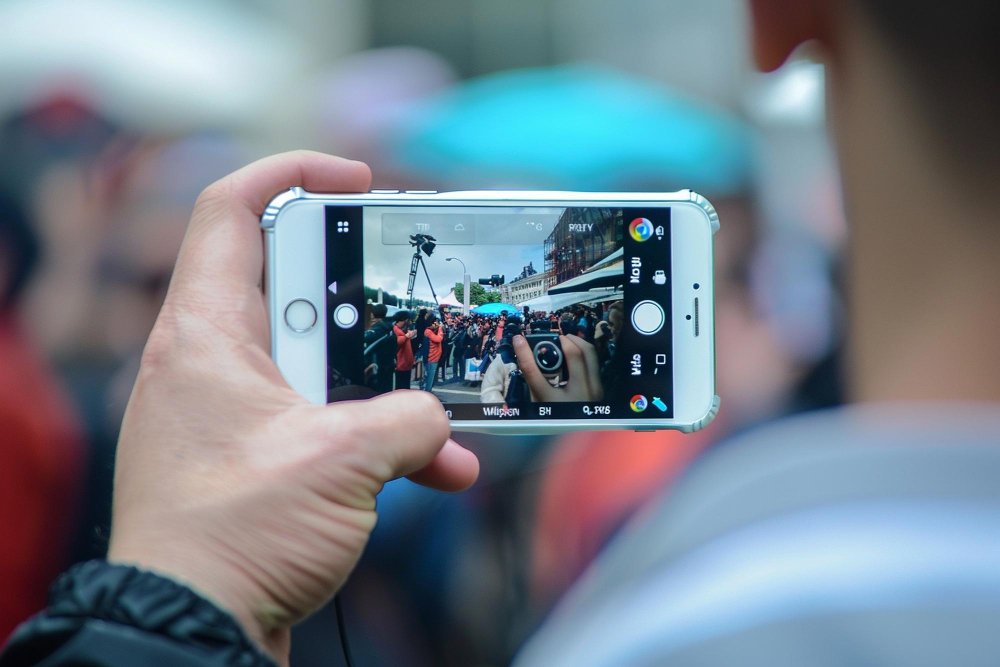The Impact of Social Media on Indian News Consumption
In recent years, social media platforms have revolutionized how people consume news globally, and India is no exception. With the widespread adoption of smartphones and increasing internet penetration, social media has become a primary source of information for millions of Indians. This shift has brought both opportunities and challenges, shaping the way news is disseminated, consumed, and perceived across the country.
The Impact of Social Media on Indian News Consumption
Rise of Social Media as a News Source
Social media platforms such as Facebook, Twitter, Instagram, and WhatsApp have emerged as popular channels for accessing news in India. These platforms offer instant updates, real-time coverage, and user-generated content, making them attractive alternatives to traditional media sources like newspapers and television. The convenience of accessing news on mobile devices has further accelerated the adoption of social media for news consumption among Indian users.
Accessibility and Reach
One of the key impacts of social media on Indian news consumption is enhanced accessibility. Unlike traditional media that relies on physical distribution networks, social media allows news to reach a vast audience instantaneously. This democratization of information has empowered users across urban and rural India to stay informed about local, national, and international events without geographical constraints. As a result, social media has bridged the gap in access to timely and diverse news content, especially in remote areas where traditional media might be limited.
Real-Time Updates and Citizen Journalism
Social media platforms enable real-time updates and citizen journalism, where ordinary individuals can report news events as they happen. This phenomenon has played a significant role in breaking news stories, capturing live events, and sharing eyewitness accounts, often before traditional media outlets can react. For instance, during natural disasters, protests, or political rallies, social media users in India often provide firsthand information and multimedia content, shaping public discourse and influencing media coverage.
Influence on News Agenda
The immediacy and viral nature of social media have also influenced the news agenda in India. Topics that gain traction on social platforms can quickly dominate public discourse, prompting traditional media to cover them extensively. Issues such as social justice movements, political controversies, and cultural debates often gain momentum on social media, prompting widespread discussion and shaping public opinion. This phenomenon has led to a more dynamic and responsive news ecosystem where audience engagement plays a crucial role in determining what becomes newsworthy.
Challenges of Misinformation and Fake News
Despite its benefits, social media has also amplified challenges related to misinformation and fake news in India. The ease of sharing information without verification has led to the rapid spread of rumors, hoaxes, and misleading content. During sensitive events like communal tensions or elections, misinformation campaigns on social media can exacerbate societal divisions and manipulate public perception. Addressing this challenge requires collaborative efforts from platforms, regulators, and media literacy initiatives to promote responsible sharing and critical thinking among users.
Fragmentation of Audiences and Filter Bubbles
Another impact of social media on Indian news consumption is the fragmentation of audiences into filter bubbles. Users often follow and engage with content that aligns with their existing beliefs and preferences, creating echo chambers where divergent viewpoints are less likely to be encountered. This phenomenon can reinforce biases, limit exposure to diverse perspectives, and polarize public discourse on contentious issues. Media organizations and platforms are increasingly challenged to balance algorithmic recommendations with ethical considerations to promote balanced news consumption habits.
Influence on Traditional Media
The advent of social media has compelled traditional media outlets in India to adapt to changing audience preferences and consumption habits. Newspapers and television channels have integrated social media into their distribution strategies, leveraging platforms to reach younger demographics and engage audiences in interactive ways. Many media organizations now prioritize digital-first approaches, developing multimedia content, live streams, and interactive features to remain competitive in the digital landscape.
Opportunities for Engagement and Participation
Despite the challenges, social media offers opportunities for enhanced engagement and audience participation in Indian news consumption. Platforms facilitate direct interactions between journalists, media organizations, and the public, fostering transparency, accountability, and feedback loops. Citizens can voice opinions, share experiences, and contribute to discussions on important issues, influencing media narratives and policy debates. This participatory approach has democratized news production to some extent, empowering individuals to contribute to the public discourse.
Newztalkies.com
Newztalkies.com is a dynamic platform that stands out in the Indian media landscape for its comprehensive coverage of news. With a focus on delivering timely updates, in-depth analyses, and engaging multimedia content, Newztalkies.com caters to a diverse audience interested in the latest developments across India and beyond. The platform combines journalistic integrity with a commitment to providing balanced perspectives on a wide range of topics, including politics, business, technology, and culture.
Through its user-friendly interface and interactive features, Newztalkies.com fosters meaningful engagement with its readers, encouraging dialogue and participation in key societal issues. Whether reporting on breaking news or exploring trending topics, TheNewztalkies.com continues to uphold its reputation as a reliable source of information and a catalyst for informed public discourse in India.
Conclusion
In conclusion, social media has profoundly transformed Indian news consumption by offering unprecedented accessibility, real-time updates, and opportunities for engagement. While it has democratized information dissemination and expanded audience reach, social media also poses challenges such as misinformation and filter bubbles. Moving forward, fostering media literacy, enhancing regulatory frameworks, and promoting responsible journalism are essential to harnessing the benefits of social media while mitigating its pitfalls. As technology continues to evolve, so too will the dynamics of news consumption in India, influenced by the evolving role of social media in shaping public discourse and societal narratives.






